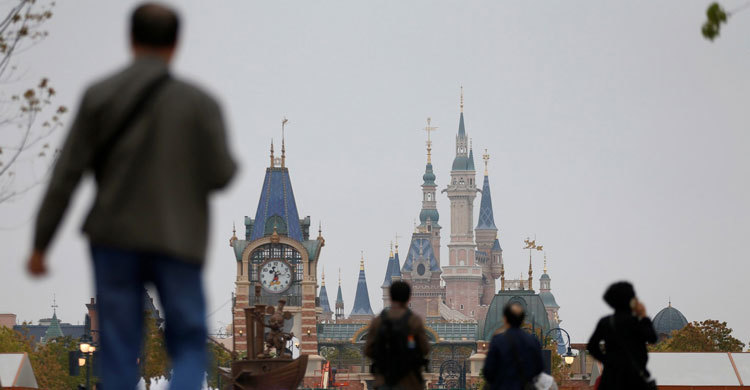Walt Disney misses Wall Street earnings targets

Walt Disney missed Wall Street earnings targets for the first time in at least two years as its sports network ESPN posted a drop in advertising revenue and subscriptions and its theme parks and consumer division also lagged behind expectations.
Shares of the world’s best-known entertainment company fell 4.5 percent in after-hours trading on Tuesday.
Disney and other media companies have been hit by the trend of ‘cord-cutting’ as younger viewers opt for streaming services over cable and satellite TV channels.
Investors are particularly focused on how ESPN, one of the strongest cable brands, weathers the storm.
The disappointing results overshadowed a string of tremendous successes at the box office for Disney.
Its movie studio revenue for the quarter soared 22 percent, to $2.1 billion, powered by box office successes of ‘Star Wars: The Force Awakens,’ ‘The Jungle Book’ and the animated movie ‘Zootopia,’ an unexpected hit that has grossed nearly $1 billion worldwide.
But revenue missed expectations at Disney’s cable networks, theme parks and consumer divisions, according to data from FactSet StreetAccount.
Disney also announced that it is discontinuing its Disney Infinity line of video¬ games and will cut between 250 and 300 jobs.
That division attempted to combine actual toys that could be used in video games, but consumer interest never took off.
Overall, the company reported a profit of $2.1 billion, or $1.30 per share. Excluding a $147 million write-down for its video-game business, the company earned $1.36 per share.
That was better than the $1.23 per share earned for the same quarter a year earlier, but missed analysts’ expectations of $1.40 per share.
Revenue rose to $12.97 billion from $12.46 billion, missing the Wall Street target of $13.19 billion, according to analysts polled by Thomson Reuters.
Revenue in the cable networks business fell nearly 2 percent, to $3.96 billion, in the second quarter, which ended April 2, Disney said.
ESPN subscriptions fell. Ad revenue also dropped, which Disney attributed to a change in timing of college football playoff games.
But operating income in the division rose 12 percent, mainly because of lower programming costs and higher fees from pay TV distributors.
Revenue in the company’s theme-park business rose 4.5 percent, to $3.9 billion, but fell short of Wall Street expectations.
Disney is set to cut the ribbon on a $5.5 billion theme park in Shanghai next month, and the company said the costs of the opening are running higher than expected.
It added that it had higher costs at Disneyland Paris and fewer visitors than expected at its park in Hong Kong.
The company has also faced questions about its succession plan. Thomas O. Staggs, the chief operating officer at Disney who had been viewed as the heir apparent to chief executive Robert A. Iger, unexpectedly stepped down last month.
Iger, 65, plans to retire in 2018, and Disney has not identified a candidate to take his place.
Source: Reuters


